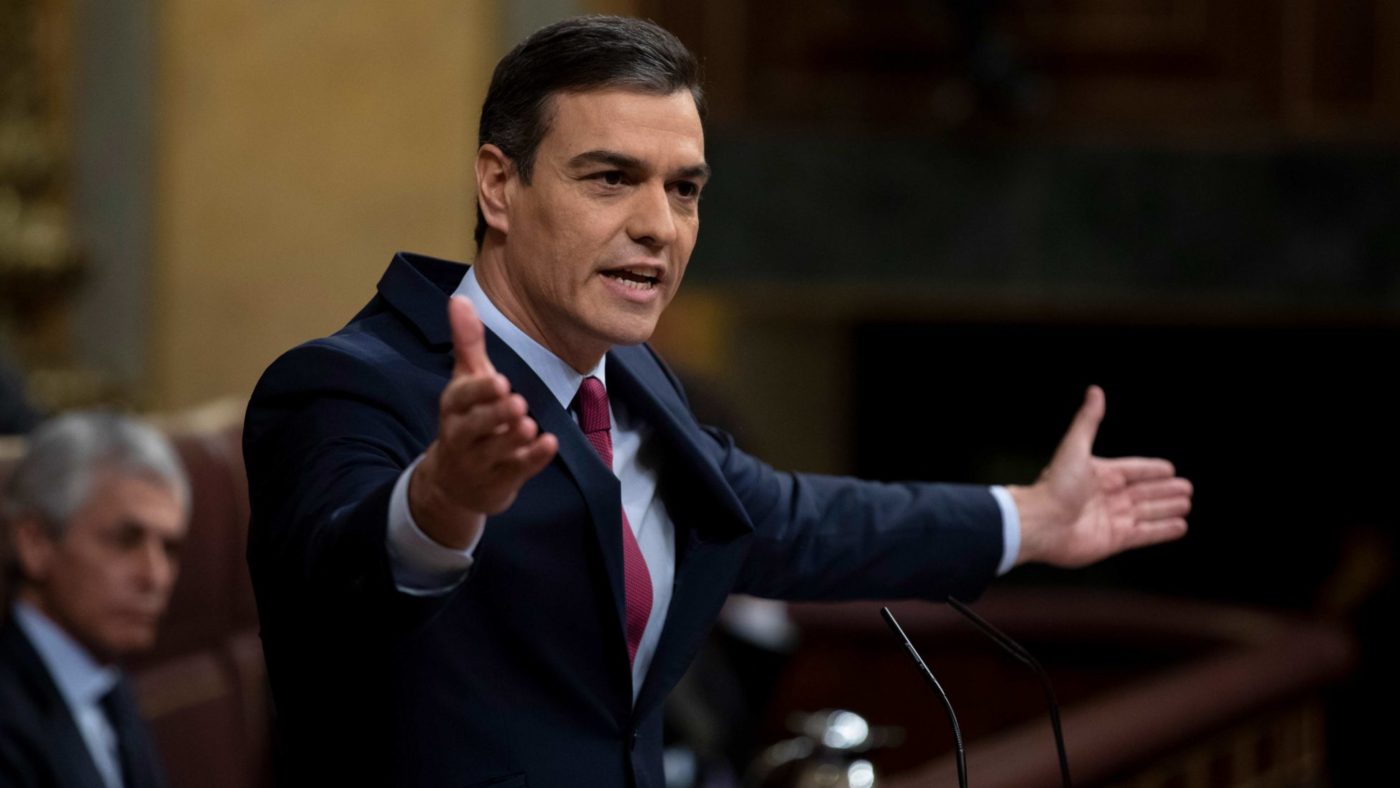When Pedro Sánchez called for elections in February last year, nobody could imagine that Spain would be without government for the next 326 days. Finally, after two elections and three unsuccessful attempts, Sánchez has managed to secure a majority of votes in Congress and has been re-elected President.
Sánchez’s re-election, however, came at a high price. Despite having stated publicly that he “wouldn’t sleep at night” if he allowed left-wing populists to enter his government, he was finally forced to give in and Pablo Iglesias, leader of Podemos and former advisor to Hugo Chávez, will become vice-president of the first coalition government in Spain since democracy was re-established in 1977.
Furthermore, the refusal of conservatives and liberal democrats to endorse the new coalition government pushed Sánchez to negotiate the support of Catalan secessionists in order to secure more yes than no votes during the investiture vote. This negotiation resulted in an agreement whereby Sánchez’s government acknowledges the political nature of the conflict in Catalonia and agrees to negotiate a solution to the conflict directly with the Catalan government, two of the conditions imposed by secessionists to make Sánchez President.
While it is still too early to judge the actions of the new Cabinet (we don’t even know its composition yet), there are already reasons to be worried. The agreement between socialists and populists includes an economic agenda which, if carried out, would have a disastrous impact on the Spanish economy.
First, the new coalition government intends to repeal the labor-market reform passed by Rajoy’s conservative government in 2012. This reform, which was aimed at introducing flexibility in Spain’s dysfunctional labor market, has crucially contributed to reducing the unemployment rate from 26% in late 2012 to 14% today. In fact, a 2016 report by BBVA Research shows that the labor-market reform prevented the destruction of almost one million jobs between 2012 and 2015. Repealing it in the current context of economic slowdown would send the country back to the road of high unemployment, the Achilles heel of the Spanish economy.
Second, Sánchez’s government plans to increase taxes on large corporations so that they pay at least a 15% effective rate on their profits (18% for financial and oil companies). This measure aims to tackle the erroneous idea that large companies pay an effective tax rate on their profits of around 7%, when, in reality, the tax bill of large businesses is substantially higher. For instance, Inditex, the parent company of Zara and the largest fashion group in the world, paid in 2018 an effective tax rate of 22%.
Despite the new tax rate being lower than what large corporations actually pay, this tax increase won’t be harmless for Spain’s private sector. The new government is expected to apply this 15% rate to the consolidated profits of multinationals regardless of whether their profits were obtained in Spain or in third countries. Put differently, were this measure to get through Congress, large corporations would incur double taxation, i.e., paying twice on the same source of income. This would increase the tax bill of large corporations, reducing the amount of funds they dedicate to productive investments, with the subsequent impact on economic growth.
The agreement between Sánchez and Podemos also includes the imposition of rent controls in large cities. Despite the good intentions of rent-control proponents, the available empirical evidence suggests the rent controls end up leading to a shortage of apartments for rent. Given that the problem of housing in Spain is related to an insufficient supply of apartments in urban areas, rent controls would only aggravate the situation, reducing the number of dwellings available and pushing up prices in non-rent-controlled areas.
An increase in public spending is also among the plans of the soon-to-be new government of Spain. However, the numbers don’t add up. Juan Ramón Rallo, professor of Economics at IE Business School, estimates that the increase in public spending planned by Sánchez’s government for this year amounts, in net terms, to 3 percentage points of GDP or € 35,000 million, which would send the budget deficit through the roof.
The good news is that the new coalition government lacks the parliamentary strength to carry out all these measures, which means that it won’t be able to apply its full economic agenda. In addition, the European Commission will be vigilant for Spain not to deviate from the deficit target, leaving Sánchez and his government little room to expand public spending.
Be that as it may, only time will tell whether Sánchez surrenders to the siren calls of populists within his government or, on the contrary, he manages to push through a more moderate agenda that doesn’t compromise economic growth in the next four years.
Click here to subscribe to our daily briefing – the best pieces from CapX and across the web.
CapX depends on the generosity of its readers. If you value what we do, please consider making a donation.


